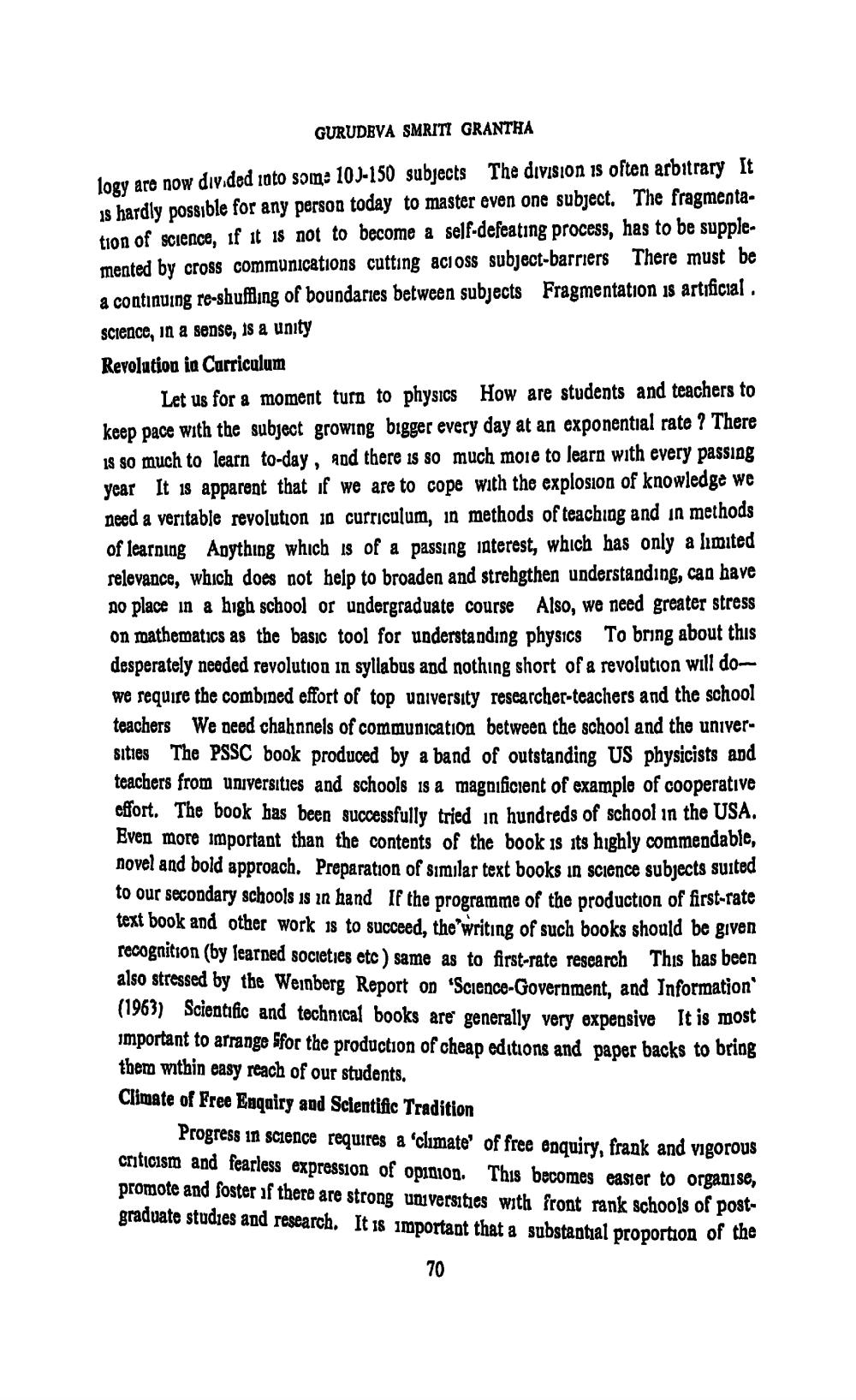________________
GURUDEVA SMRITI GRANTHA
logy are now div.ded into soma 10J-150 subjects The division is often arbitrary It is hardly possible for any person today to master even one subject. The fragmentation of science, if it is not to become a self-defeating process, has to be supplemented by cross communications cutting acıoss subject-barriers There must be a continuing re-shufiling of boundaries between subjects Fragmentation is artificial. science, in a sense, is a unity Revolution in Curriculum
Let us for a moment turn to physics How are students and teachers to keep pace with the subject growing bigger every day at an exponential rate ? There 18 80 much to learn to-day, and there is so much more to learn with every passing year It is apparent that if we are to cope with the explosion of knowledge we need a veritable revolution 10 curriculum, in methods of teaching and in methods of learning Anything which is of a passing interest, which has only a limited relevance, which does not help to broaden and strehgthen understanding, can have no place in a high school or undergraduate course Also, we need greater stress on mathematics as the basic tool for understanding physics To bring about this desperately needed revolution in syllabus and nothing short of a revolution will dom we require the combined effort of top university researcher-teachers and the school teachers We need chahnnels of communication between the school and the universities The PSSC book produced by a band of outstanding US physicists and teachers from universities and schools is a magnificient of example of cooperative effort. The book has been successfully tried in hundreds of school in the USA. Even more important than the contents of the book is its highly commendable, novel and bold approach. Preparation of similar text books in science subjects suited to our secondary schools is in hand If the programme of the production of first-rate text book and other work is to succeed, the writing of such books should be given recognition (by learned societies etc) same as to first-rate research This has been also stressed by the Weinberg Report on Science-Government, and Information (1963) Scientific and technical books are generally very expensive It is most important to arrange Sfor the production of cheap editions and paper backs to bring them within easy reach of our students. Climate of Free Enquiry and Scientific Tradition
Progress in science requires a 'climate' of free enquiry, frank and vigorous criticism and fearless expression of opinion. This becomes easier to organise, promote and foster if there are strong universities with front rank schools of postgraduate studies and research. It is important that a substantial proportion of the
70




